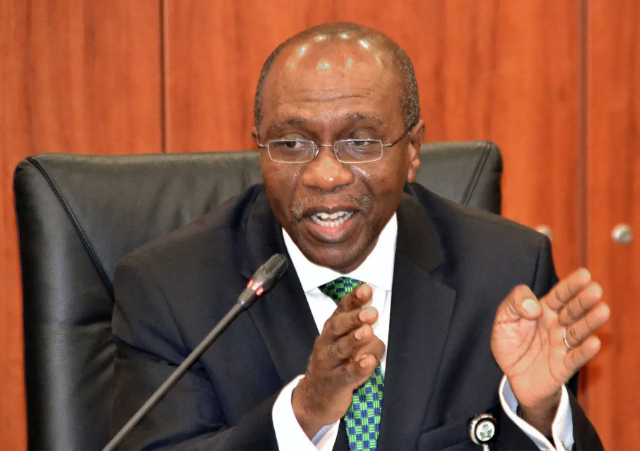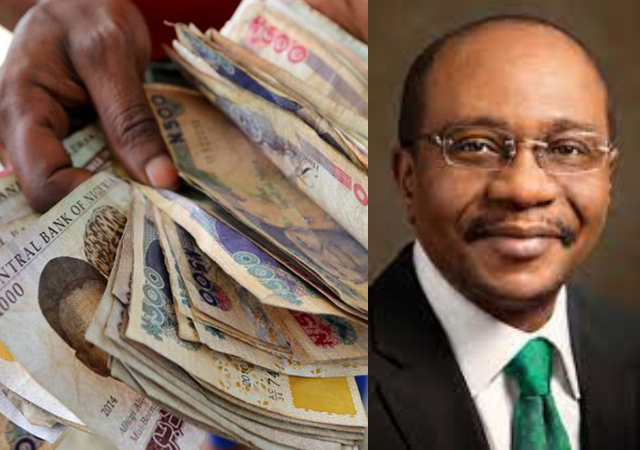
The liquidity crisis in the country may lead to the merger of at least seven commercial banks, which according to experts are having a tough time.
Others it was gathered, may need to recapitalise this year in order to mitigate the effects of the challenges facing the banking sector.
Sources in the sector disclosed that a serious liquidity risk brewing in the sector could force some Nigerian banks to seek mergers, bailout from their foreign counterparts or settle for regional banking in 2017.
LEADERSHIP learnt that the liquidity problems were founded in the nation’s current economic downturn which is having a devastating effect on the banks.
Also, a review of the quarterly performance for the banking index in 2016 showed that, apart from the first quarter when the sector gained 1.84 per cent, in second and third quarters, it declined by 0.93 per cent and 8.05 per cent, while in the fourth quarter, it shed 0.16 per cent, an indication that 2017 may be worse considering the current economic crisis of the country
Notably, the banking sector began 2017 on a negative note as banking stocks started the year with falling share prices in the first three days of this year, although market analysts are of the view that the period should not be taken as a barometer to determine the direction of their performance in 2017.
The increasing pressure on the banks, with the falling value of the naira depleting their capital base, will increase cases of non-performing loans amid high operational cost that has also forced many banks to cut down on staff size and close branches in the face of low profit output.
LEADERSHIP recalls that a director of the Monetary Policy Department at the Central Bank of Nigeria (CBN), Dr Moses Tule, while delivering a lecture at the ‘2016 Business Managers Roundtable’ organised by the Chartered Institute of Bankers of Nigeria (CIBN) in Abuja, recently, had said that “fiscal and monetary policies should lend a hand” to fixing the Nigerian economic crisis, noting that the crisis is causing stress to the banking sector.
According to him, the current state of the nation’s economy is a clear picture of the health of the banking sector.
Tule noted that monetary policies alone could not solve the problem and called on the federal government to pay attention to confidence-building fiscal policies.
Similarly, the managing director of the Nigeria Deposit Insurance Corporation (NDIC), Alhaji Umaru Ibrahim, had in December hinted that a lot of banks would need to recapitalise to overcome the daunting challenges that they faced, especially with respect to high interest rate.
“The banks are facing liquidity issues; unemployment is also affecting us globally, in addition to dwindling revenues and profits, high expectations of quality services from depositors and high expectations from investors,’’ Alhaji Ibrahim said, in Kaduna.
He also concurred that many of the banks needed to recapitalise.
LEADERSHIP reports that after the recapitalisation exercise of 2004/2005, the CBN had in 2015, about 10 years after, directed some systemically important banks, which were short of capital but considered too big to fail, to submit recapitalisation plans to it.
The CBN had said a few undisclosed banks did not meet the minimum Capital Adequacy Ratio (CAR) of 10 per cent and 15 per cent for regional/national and international banks, respectively, under Basel II.
The apex bank had, in 2014, classified eight Nigerian banks – First Bank of Nigeria Ltd (FirstBank), Zenith Bank Plc, Guaranty Trust Bank Plc (GTBank), United Bank for Africa Plc (UBA), Access Bank, Ecobank Nigeria Plc, Diamond Bank Plc and Skye Bank Plc – as systemically important financial institutions (SIFIs) and imposed on them a new set of rules requiring them to maintain a minimum CAR of 16 per cent.
A financial analyst who craved anonymity told LEADERSHIP that “at least seven commercial banks are facing daunting financial challenges that could slide them into distress” in the nearest possible future based on what he described as “unfortunate” fiscal policies of the federal government.
He noted that most of the banks are only in business for survival and called on the government to review its fiscal policies.
According to financial experts, the implications of this development for the banking sector and the general economy are daunting.
In a chat with LEADERSHIP, Tayo Bello, Ph.D, a senior lecturer at the Department of Private and Public Law, Babcock University, Ogun State, said, “Some banks may move from being national banks to regional banks. Some might go for the option of merger with other banks, while others may go to foreign banks for bailout in the form of investments, or even be taken over by foreign banks; and I see it happening very, very soon.”
Dr Bello remarked that the federal government “is not taking the economy seriously,” adding that “before the end of the first quarter of this year (2017), only God will save a majority of the banks.”
He pointed at the poor performances of most of the banks in the capital market as an indicator.
Some professionals in the industry raised concern over the likelihood of massive job cuts which would have a huge multiplier-effect on the economy and the Gross Domestic Product (GDP), by extension.
“The pressure on the banks will result in mal-administration because the people within the banking sector will begin to look for a way out for survival against the eminent pressure. Once that happens, it will continue to damage the economy,” a CBN source said.
Despite efforts by the authorities to bridge the gap between the exchange rate of the dollar to the naira, the prices of commodities are still determined by the cost of the dollar at the black market, which is over 59 per cent higher than the official rate of N305 per dollar.
Bello said: “The money outside the banking sector (financial intermediation) is higher than what is in the sector,” a situation he blamed on the authorities not using the right monetary tool and a self-inflicted problem whereby the government goes after anybody that makes much cash deposit with the presumption that such a person is either a thief or acting as a surrogate for somebody.
“The president has created self-destruction by labeling everybody in the country a thief and branding the country as corrupt. Foreign investors have freighted billions of their cash investment in the country away from the banks. That is a source of problem for the banks,” the Babcock University lecturer said.
Noting that liquidity is the raw material of the banks, some of the experts who spoke to LEADERSHIP said the introduction and bad implementation of the Treasury Single Account (TSA) had created more troubles for the banks.
“The TSA has multiplier-effects on the banks’ liquidity,” an economic analyst, Joe Osivue, said.
Experts said some banks are experiencing serious cash crunch to the extent that they do not even have envelops and plastic bags to bag cash for customers.
Loans to various sectors of the economy, including the aviation, construction and oil and gas sectors are usually major sources of finance to the banks, but liquidity problems and scarcity of dollar in an economy in complete recession have forced the interest rate up and, by extension, discouraged prospective investors from borrowing from the banks.
Efforts to get some clarifications at the CBN were futile as the phone lines of the spokesperson of the apex bank were switched off.
Similarly, the director of banking supervision at the NDIC could not be reached at the time of filing this report as he was said to be unavailable.


